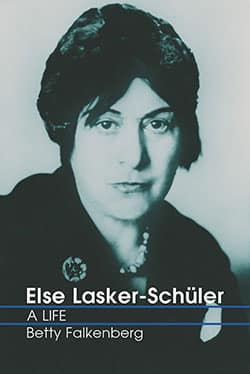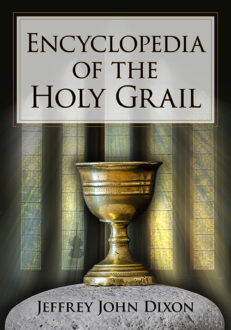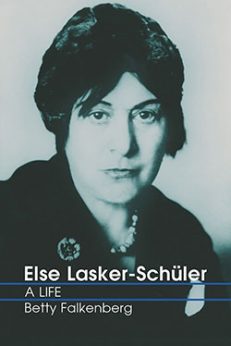Else Lasker-Schüler
A Life
$39.95
In stock
About the Book
Else Lasker-Schüler, a pivotal figure in German Expressionism, presided over avant-garde café life in pre–World War I Berlin in much the same way Gertrude Stein did in Paris around the same time. While her work is not yet very well known in the English–speaking world, it has been enjoying a critical and popular revival in Germany.
This full-length biography of Lasker-Schüler—the first in English—explores her poems, plays, prose and graphic works in light of her life. It begins with her fleeing to Switzerland after Hitler’s accession to power in 1933, looks back at her childhood in Wuppertal, then follows her life through to its end in Jerusalem in January 1945. As a Jew, a woman and a bohemian, Lasker-Schüler defied every category. Her two marriages—first to Dr. Berthold Lasker, then to Herwarth Walden, founder of the leading avant-garde periodical, gallery and publishing house, Der Sturm (The Storm)—as well as her interactions with Karl Kraus, Franz Marc, Gottfried Benn, Martin Buber and Gershom Scholem, are documented in letters and poems, many included here both in the original and in translation.
About the Author(s)
Bibliographic Details
Betty Falkenberg
Format: softcover (6 x 9)
Pages: 248
Bibliographic Info: photos, chronology, appendices, notes, bibliography, index
Copyright Date: 2003
pISBN: 978-0-7864-1460-4
Imprint: McFarland
Table of Contents
Acknowledgments vii
Introduction 1
1 Banished 7
2 Saint Vitus 17
3 Wilted Myrtle 35
4 (1903–1909) The Nights of Tino 51
5 (1910–1912) Storm Years 67
6 Blue Rider 78
7 Café Megalomania: The Pauper Prince 92
8 (1914–1918) War Years 106
9 (1918–1925) “I Unload!” 123
10 (1925–1933) Weimar 137
11 Exile: The Switzerland Years 148
12 Mein Blaues Klavier 163
Chronology 181
Appendices 184
Notes 205
Selected Bibliography 223
Index 231
Book Reviews & Awards
“this book has many positive features…the first biography in English of this eccentric poet and artist…numerous notes…interesting”—Choice; “this biography opens the doors to a brilliant era of German cultural history…Falkenberg has taken Else Lasker-Schuler’s complex personal life—handled here with sensitivity and finesse—and woven it seamlessly into the story of the many artistic milieus in which the poet played a part”—Aufbau.





